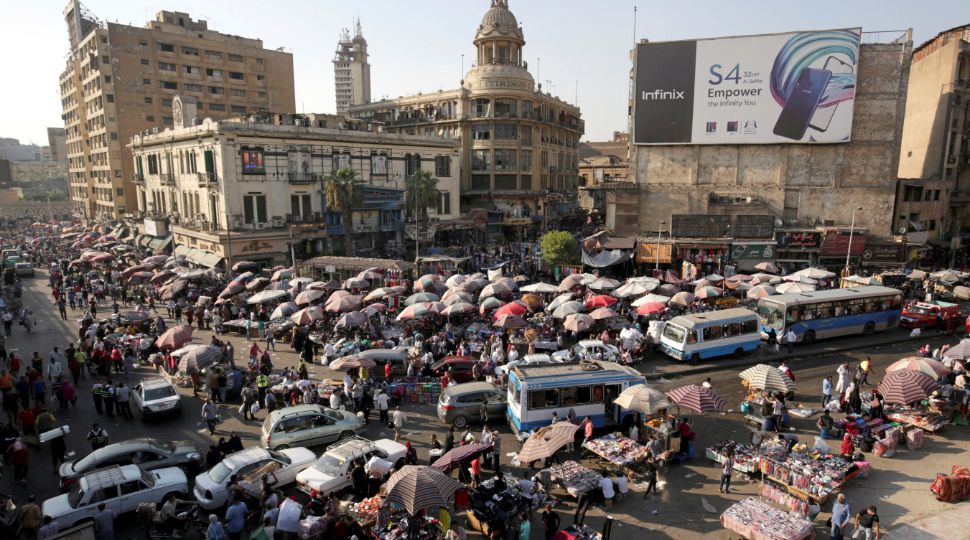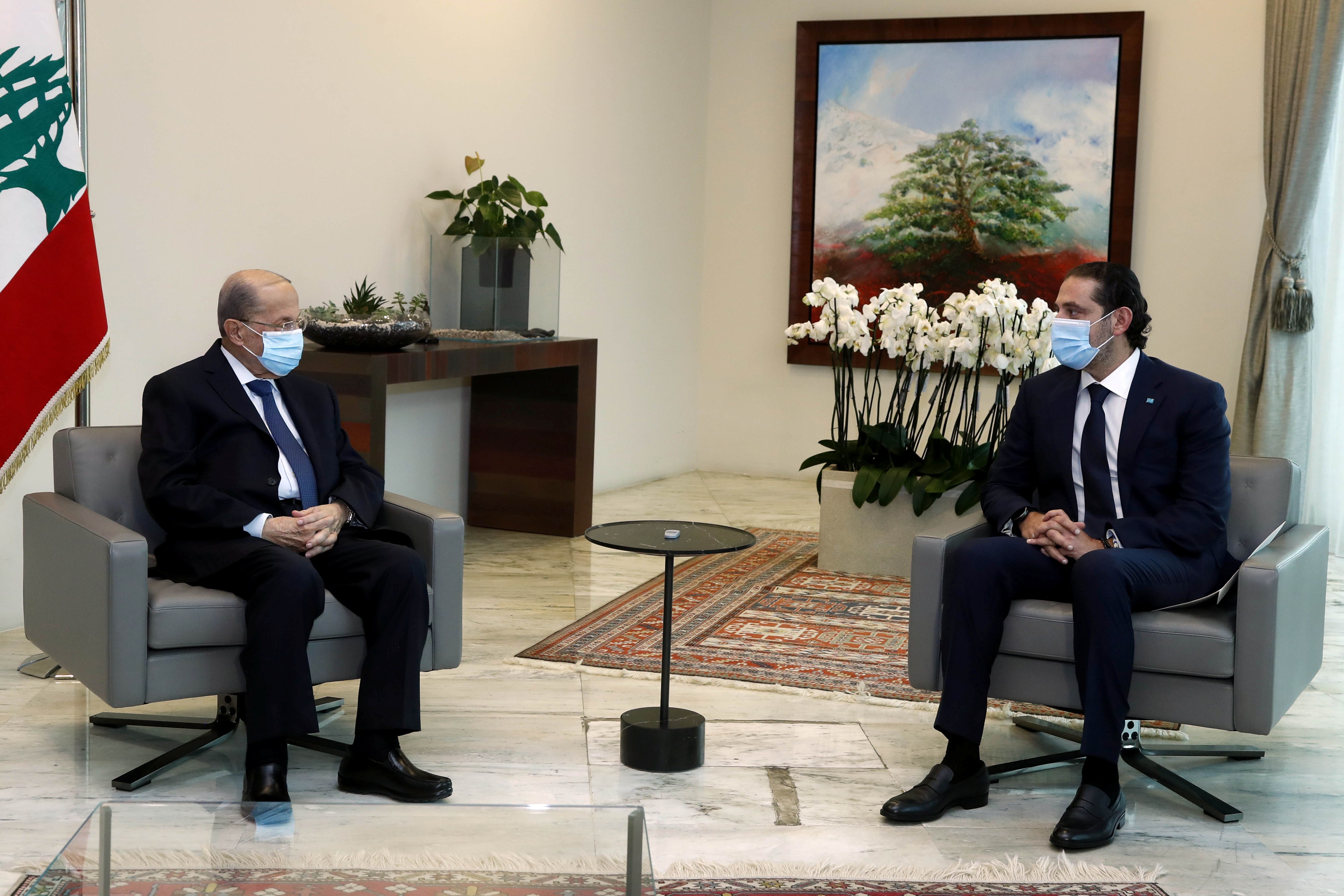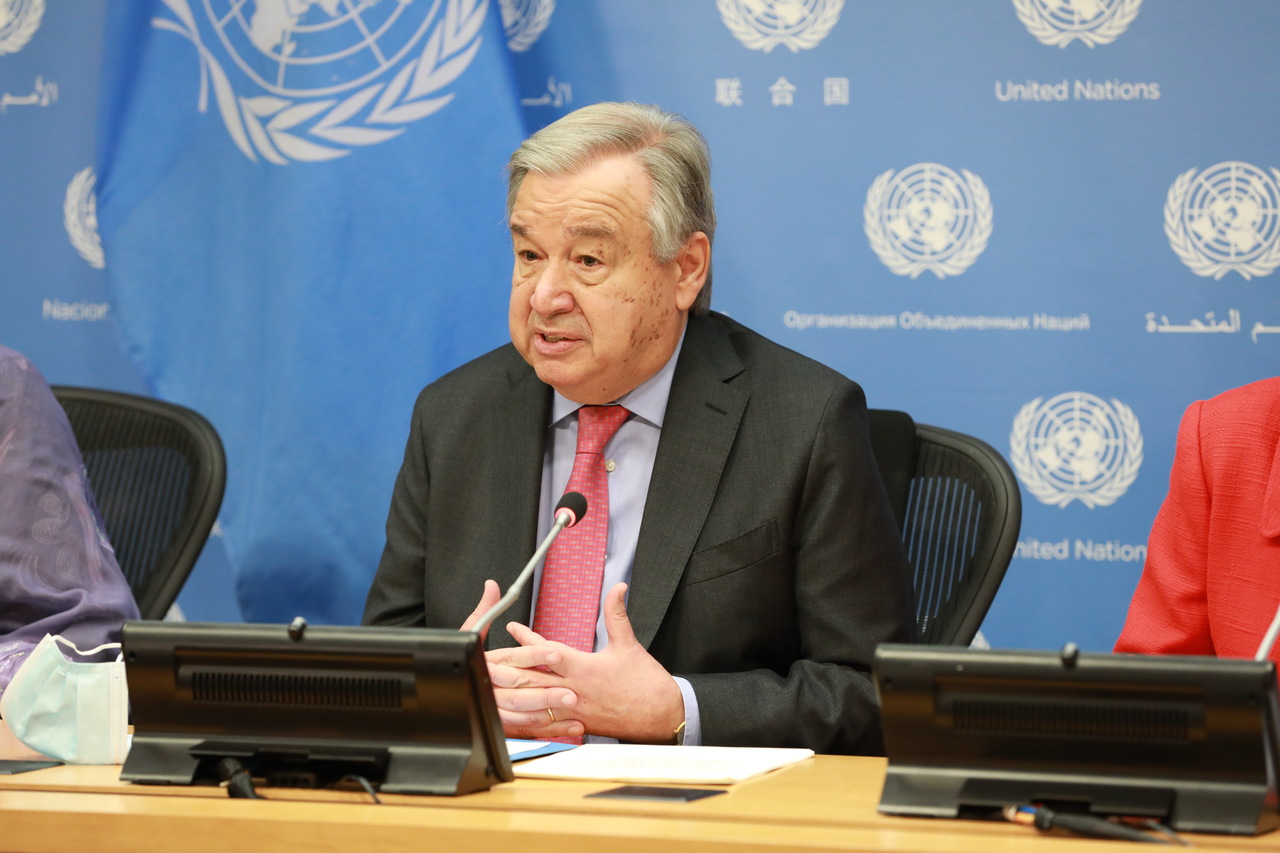Egypt Faces Severe Economic Problems
In August, a year before the end of his term of office, Tarek Amer, head of the Egyptian Central Bank, resigned. This was a consequence of the deepening economic crisis caused by a decline in the country’s currency reserves and the impact of global problems on Egypt, which is dependent on food imports. Capital-intensive investments, mainly in the energy and real estate sectors, will exacerbate Egypt’s situation. Given the size of its population, economic collapse would have a significant destabilising impact on the EU’s southern neighbourhood.
 Nick Hannes/Panos Pictures/ Panos Pictures/ FORUM
Nick Hannes/Panos Pictures/ Panos Pictures/ FORUM
Piling up Problems
Egypt’s emerging market economy is particularly vulnerable to the effects of global instability. The unpredictable consequences of events such as the outbreak of the COVID-19 pandemic or the Russian aggression against Ukraine are causing investors to withdraw from such markets. According to the latest report by the International Monetary Fund (IMF), foreign financing for them will fall by around 30%. In March this year alone, about $20 billion left Egypt, the equivalent of half of the Egyptian Central Bank’s reserves. Foreign exchange reserves fell from $44.5 billion in 2019 to $33.4 billion in June this year. The dollar shortage contributed to the government’s decision to devalue the Egyptian pound by 14% in the same month. The resignation of the head of the central bank became another source of uncertainty, which contributed to a further decline in the value of the pound. Egypt is also faced with high inflation—14.6% in July—related to rising energy and food prices (Egypt imported about 85% of its wheat from Russia and Ukraine) and growing debt. Since 2010, Egypt’s debt has quadrupled to $370 billion, which is 90% of GDP. Additionally, this year the government intends to borrow another $73 billion by selling bonds, although a third of its budget had to be allocated to debt service and expenditures on education or healthcare did not reach the minimum required by the constitution. Such policies made the government a major customer of Egyptian banks. The share of the private sector in lending fell from 55% in 2001 to 27% in 2020 (the world average is 59%).
Egypt’s economic instability is exacerbated by demographic problems. The labour participation rate fell to 42% in 2021 (the average for low and middle-income countries is 58%). The unemployment rate among young people (between 15-24 years of age) is close to 25%, and many of those working are employed unofficially (around 63% of working Egyptians in total) or part-time. The number of new jobs is also decreasing year by year—from 854,000 in 2010, it dropped to 102,000 in 2019 and just 76,000 in 2020.
At the same time, since coming to power, President Abd al-Fattah al-Sisi based his plan for the economic development of Egypt on capital-intensive state investments, such as the construction of a new capital (New Cairo) and other cities (so-called smart cities), the development of railway infrastructure and the extraction of energy resources and metals. This makes the development of the Egyptian economy dependent on foreign loans and investments, without creating stable jobs.
Military Economy
The main tool for implementing Sisi’s vision is the military and enterprises controlled by security institutions. Since 1970, the number of companies managed by the army has almost quadrupled and now stands at around 80, mostly in the civil sector. Commercial military ventures fall under one of three bodies—the Ministry of Military Production, which oversees 20 companies, Ministry of Defence, which controls some 35, and the Arab Industrialisation Organization, which has around 15. However, their share of the economy remains difficult to estimate and amounts to between 3% and as much as 50%. In December last year, the Egyptian authorities announced the sale of shares (between 10% and 100%) in two military food and hydrocarbon companies.
The military manages construction, mining, food, and tourism companies. However, the main area of their activity is public infrastructure. From 2014 to 2020, the army carried out 2,800 out of 20,000 projects financed from public funds (about 25% of total investments by value). One of the most important initiatives is the construction of the New Administrative Capital, carried out by a military enterprise that will also benefit from the sale of real estate there.
Commercial military activity is covered by a series of exemptions from the control and taxation systems, and these privileges have increased since Sisi took power. In 2015, the minister of defence exempted nearly 600 hotels, resorts, and real estate owned by the military from property tax. Military companies do not have to pay import duties, and the goods shipped to them do not have to be inspected. In 2016, when the VAT Act, which was part of the conditions for receiving a loan from the IMF, entered into force, the military was exempted from VAT on goods, equipment, machinery, services, and raw materials needed for armaments, defence, and state security. However, this right is abused: VAT is not included, for example, in services provided by hotels belonging to the military. In addition, referring to national security, military enterprises do not disclose financial details of such activities as renting wedding halls or selling food. As a result, private investors avoid sectors where the military plays a significant role because of the unequal competition.
Foreign Investments and Loans
Basing the development of the Egyptian economy primarily on capital-intensive activities carried out by the military has made the government dependent on foreign currency inflows in the form of loans and investments. Due to the lack of other sources of external financing, the Central Bank offered high interest rates, combined with a pegged currency to keep the interest of foreign investors. Despite this, Egypt failed to attract significant foreign direct investment (FDI) apart from its hydrocarbon and real estate sectors, and even in these two sectors, the FDI-to-GDP ratio has fallen from over 8% in 2005-2006 to less than 2% since 2013.
In 2016, the Egyptian authorities began reforms that were part of the commitments imposed on the state for a $12 billion IMF loan. The Egyptian pound was devalued, new taxes and more restrictive monetary policy were introduced. These reforms contributed to economic growth, which in 2018 and 2019 amounted to 5.31% and 5.56%, respectively, but did not improve the living conditions of Egyptians—the percentage of people living below the poverty line in the last five years has remained at a constant level of about 30%. During the COVID-19 pandemic, Egypt obtained two more loans from the IMF and began negotiating another after the Russian attack on Ukraine. Currently, Egypt is the second-largest client of the IMF, with total loans exceeding $20 billion. This exceeds the amount granted to Egypt in the IMF formula (it depends on GDP and the IMF rating for the state in three categories), which is associated with additional interests.
To reduce the risk of insolvency, the Egyptian authorities managed to obtain investments from the Gulf states. Since the end of March this year, Qatar, the United Arab Emirates, and Saudi Arabia have invested a total of $12 billion in Egypt, buying shares in state-owned companies or depositing funds with the Egyptian Central Bank. However, despite the support from the Gulf and the likely success of talks with the IMF, in May the Moody’s rating agency downgraded Egypt’s economic risk from “stable” to “negative” for the first time in nine years.
The Future of the Egyptian Economy
Egypt’s increasingly rapid economic deterioration is a result of the country’s low resilience to external factors, further reduced by its dependence on foreign investment and focus on economic development via megaprojects. Their implementation contributes to the improvement of the financial situation only to a limited extent—businesses linked to the military and the middle-upper class benefit. However, these projects are not able to counteract unemployment and widening poverty in society, which is crucial for improving the economic situation of the state. Continuation of development dependent on external financing and Central Bank financial engineering increases the risk of a crisis similar to that in Lebanon.
Further support from international financial institutions or the EU should be linked to economic reforms that not only limit the privileges of the military enterprises but also force them to be more transparent. Moreover, foreign investment and loans should be aimed at strengthening sectors that offer a large number of stable jobs, such as services, agriculture, and healthcare. Such actions also have the greatest potential to reduce irregular migration from Egypt to the EU, which will worsen if the Egyptian economy collapses.





